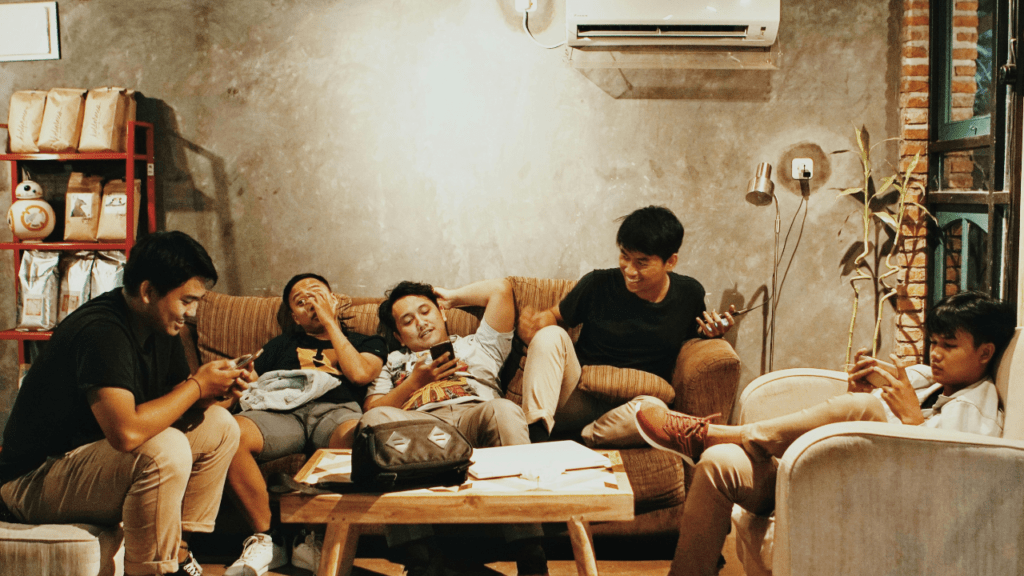Early sobriety is a critical time in recovery, filled with both challenges and opportunities. Additionally, one of the most significant hurdles individuals face is navigating social situations while maintaining their newfound sobriety. At Destination Hope, we understand these challenges and provide our clients with the tools and strategies needed to thrive in social settings without compromising their recovery journey.
Planning Ahead for Social Events
Preparation is key when it comes to managing social situations in early sobriety. Here are some strategies to help you plan effectively:
- Research the event: Know what to expect regarding the presence of alcohol or other triggers.
- Set a time limit: Decide in advance how long you’ll stay, giving yourself permission to leave early if needed.
- Arrange your own transportation: This ensures you can leave when you want to, without relying on others.
- Bring a sober friend: Having support can make navigating challenging situations easier.
- Practice visualization: Mentally rehearse how you’ll handle potential scenarios.
Developing a Strong Social Support System
A robust support network is crucial for maintaining sobriety, especially in social settings. Consider these steps:
- Attend support group meetings regularly.
- Stay in touch with your sponsor or recovery mentor.
- Cultivate relationships with sober friends who understand your journey.
- Communicate openly with trusted family members about your needs and concerns.

Mastering Refusal Skills
Learning to say “no” confidently is an essential skill in early sobriety. Practice these refusal techniques:
- Be direct: A simple “No, thank you” is often enough.
- Offer an alternative: Suggest a non-alcoholic beverage instead.
- Use “I” statements: “I don’t drink” is more powerful than “I can’t drink.”
- Have a prepared excuse: If needed, have a reason ready for declining, such as “I’m driving” or “I have an early morning.”
Dealing with Triggers and Cravings in Social Settings
Triggers and cravings are common in social situations. Here’s how to manage them effectively:
- Identify your triggers: Be aware of people, places, or situations that may spark cravings.
- Use coping strategies: Deep breathing, mindfulness, or stepping away for a moment can help.
- Keep your hands busy: Hold a non-alcoholic drink or engage in an activity to distract yourself.
- Remember your “why”: Carry a reminder of your reasons for staying sober.
Communicating Your Needs to Friends and Family
Open communication with loved ones is crucial. Consider these approaches:
- Be honest about your recovery journey.
- Explain what you need to feel comfortable in social situations.
- Set clear boundaries about what you are and aren’t willing to do.
- Educate them about the importance of your sobriety and how they can support you.
Choosing Alcohol-Free Alternatives
Embracing non-alcoholic options can help you feel included without compromising your sobriety:
- Explore mocktails and creative non-alcoholic beverages.
- Bring your own drinks to ensure you have options you enjoy.
- Focus on the social aspect of gatherings rather than the drinking.
- Suggest alcohol-free activities when planning get-togethers with friends.
Knowing When to Leave a Social Situation
Recognizing when it’s time to exit a social situation is a crucial skill:
- Trust your instincts: If you feel uncomfortable or triggered, it’s okay to leave.
- Have an exit strategy: Plan how you’ll leave and what you’ll say in advance.
- Use the “bookend” technique: Check in with a support person before and after the event.
- Prioritize your sobriety: Remember, no social obligation is worth risking your recovery.
Building a New Sober Social Network
Creating a social circle that supports your sober lifestyle is essential:
- Join sober meetup groups or clubs.
- Participate in recovery community events.
- Explore new hobbies or interests that don’t revolve around alcohol.
- Volunteer for causes you care about to meet like-minded individuals.
Gradual Reintegration and Setting Boundaries
Reintegrating into social life should be a gradual process:
- Start with low-risk situations and slowly progress to more challenging ones.
- Set clear boundaries with friends and family about what you’re comfortable with.
- Be prepared to adjust your social circle if certain relationships don’t support your recovery.
- Practice self-compassion as you navigate this new terrain.

Navigating Common Challenges
Weddings
Weddings can be particularly challenging. Consider these strategies:
- Attend the ceremony only if you’re not comfortable with the reception.
- Bring a sober support person as your plus-one.
- Have a non-alcoholic drink ready for toasts.
- Plan for moments that might be triggering, like the champagne toast.
Holidays
Holiday seasons often revolve around alcohol. Here’s how to cope:
- Create new traditions that don’t involve drinking.
- Host your own sober holiday gatherings.
- Have a “holiday survival plan” in place, including exit strategies and support check-ins.
- Remember it’s okay to skip events that feel too risky for your sobriety.
Work Events
Professional settings can present unique challenges:
- Arrive early and leave early to avoid peak drinking times.
- Focus on networking and professional development rather than socializing.
- Have a ready explanation for why you’re not drinking if asked.
- Consider disclosing your sobriety to a trusted colleague or HR representative if appropriate.
How Destination Hope Prepares Clients for Social Situations
At Destination Hope, we recognize the importance of preparing our clients for real-world challenges. Our comprehensive treatment and aftercare planning include:
- Cognitive Behavioral Therapy (CBT) to address underlying thought patterns and behaviors.
- Family therapy sessions to improve communication and set healthy boundaries.
- Personalized aftercare plans that include strategies for social reintegration.
- Ongoing support groups and alumni programs to maintain connection post-treatment.
Managing social situations in early sobriety is a skill that improves with time and practice. Remember, your recovery is the priority, and it’s okay to put your needs first. With the right strategies and support, you can navigate social settings while maintaining your commitment to sobriety.
If you or a loved one is struggling with addiction and needs support in building these crucial skills, Destination Hope is here to help. Our experienced team provides comprehensive treatment and aftercare planning to set you up for long-term success in recovery.
Take the first step towards a sober, fulfilling life. Call Destination Hope today at 954-302-4269 to learn more about our programs and how we can support your journey to lasting recovery.

